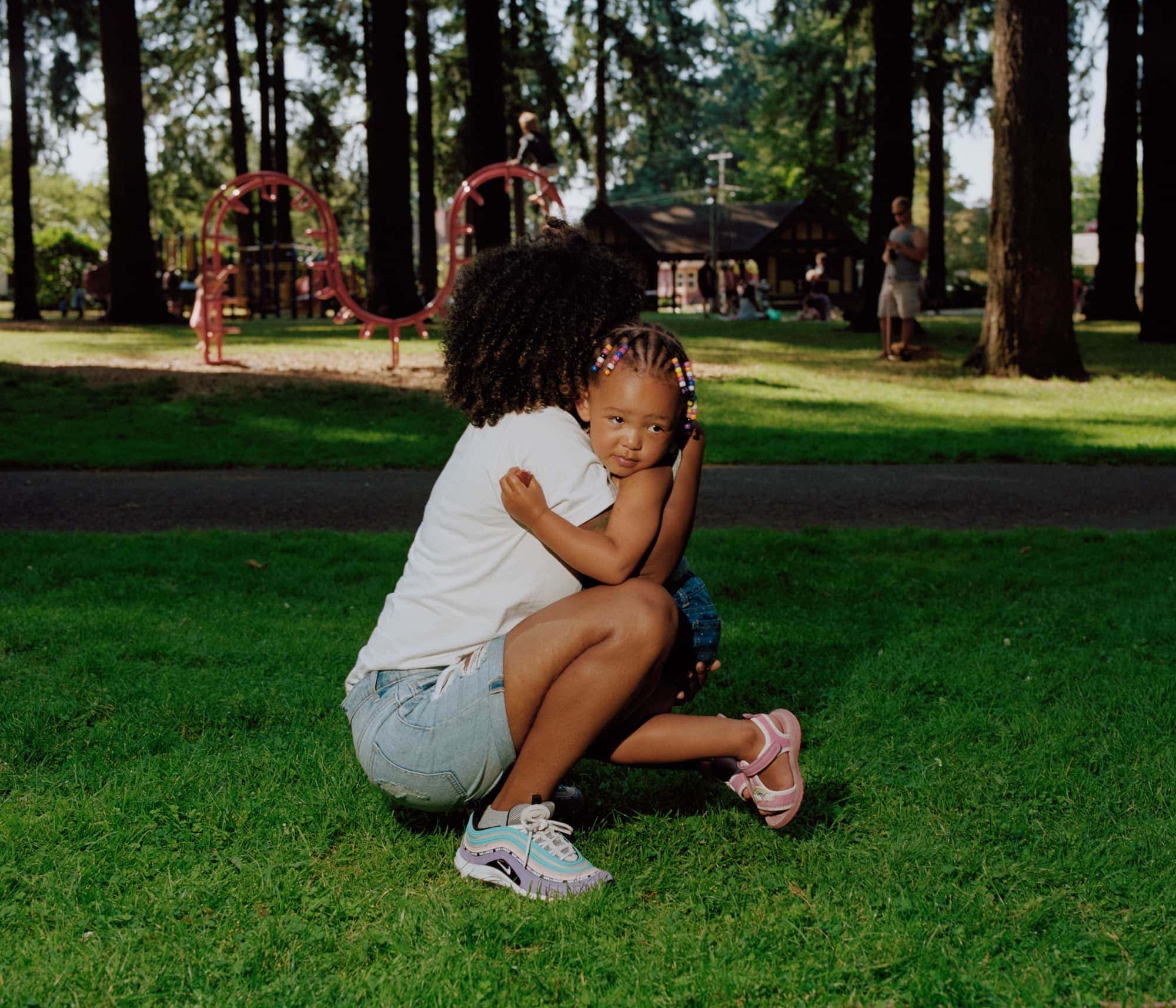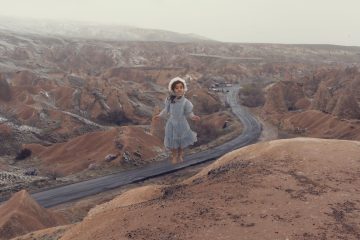
On first glance, the Paraguay-born, Japanese-Canadian photographer Ricardo Nagoaka’s images show an idyllic community. Sun permeates each scene; the grass is a shade of green gardeners dream of; there are loving embraces; there is harmony. But on closer inspection, cracks begin to show which suggest that not everything is as it seems. A church’s windows are boarded up. A look on a child’s face betrays slight apprehension. New structures cast shadow on existing houses.
The story that Ricardo focuses on in his series Eden Within Eden, is one close to home as he looks at the insidious effects of gentrification in his own neighbourhood – and the way communities are displaced and pushed out in the process.
Ricardo, tell us about your project Eden Within Eden…
The body of work began through a small commission from a non-profit in the neighborhood I live in. They’d asked me to make portraits of the neighborhood to commemorate the North Portland communities; it was during this that I was cued in to the history of this place.
The work is not a didactic exploration, but an emotional one that gathers the experiences I’ve heard many times over
Oregon has a tumultuous relationship with race, with the territory and state being birthed with Exclusionary Laws that forbid Black Americans from living within its borders, to the racially-motivated housing practices that led to the targeted segregation that is all-too-common throughout this country.
Today, the same communities are the most prone to being pushed out by the economic forces of gentrification, and it’s here where I began to make images.
I’ve been chasing this idea of the eradication of a home, the distancing that happens both physically and psychologically to folks as the very space and idea of what a home is becomes lost to the forces at hand, and the uncertainty of the future as we see it today. The work is not a didactic exploration of what this entails, but an emotional one that gathers the experiences I’ve heard repeated many times over.
Do you think the fact you live in the same neighbourhood means that people are more open to you photographing them?
No, I wouldn’t say that my living in the neighborhood affected how people saw me. What really helped was the accessibility and privilege of being able to walk outside my home and be right where the work is happening. It truly facilitated building those relationships over the last three years as I continue to be present and catch up with folks as much as I can.
What really helped was the accessibility and privilege of being able to walk outside my home and be right where the work is happening
What’s the meaning behind the title of your project?
The Garden of Eden is such a fascinating story to me; that it is a place of endless grace but is so sharply connected to being banished and punished. That play between these polar ends is a lot of what I see in Portland as a city. I had then stumbled upon a book with the same name that tracks the history of people coming to Oregon to create their own sense of utopia, their own Eden, and for some folks that was a place that only included white European people.
Can you choose a photo from the series and tell us the story behind it?
The image of the girl holding the child is one of my favorite images I’ve made in the past year. I was invited to the reunion of a family I have been photographing over a summer, and these two girls were running around the park when they paused for a moment and had this really tender moment. There’s an apprehension in the kid’s face, coupled with the embrace they’re in; it really speaks to a lot of the ideas I’ve been working through with this project.
Your images have minimal contextual information, yet they retain a strong documentary feel. With the subject matter of your images, was there a reason you decided not to include any contextual information?
I’m currently working through a trove of archival documents that I will be using to contextualize the ramifications of the work in a manner that I see more fitting, as opposed to the voice coming directly from my own person. With the work still being in progress, I don’t want to be overly prescriptive at this point.
The Garden of Eden is such a fascinating story to me; that it is a place of endless grace but is so sharply connected to being banished and punished
There is still so much more that I’d like to explore, and so much that I am still coming to understand. I also would like the viewer to involve themselves with the images first and foremost, to stop and think of the images critically without an explanation that gives the images too swift of a read. Once the project is done, I will feel a lot more comfortable distilling into words what it is that this work is all about.




